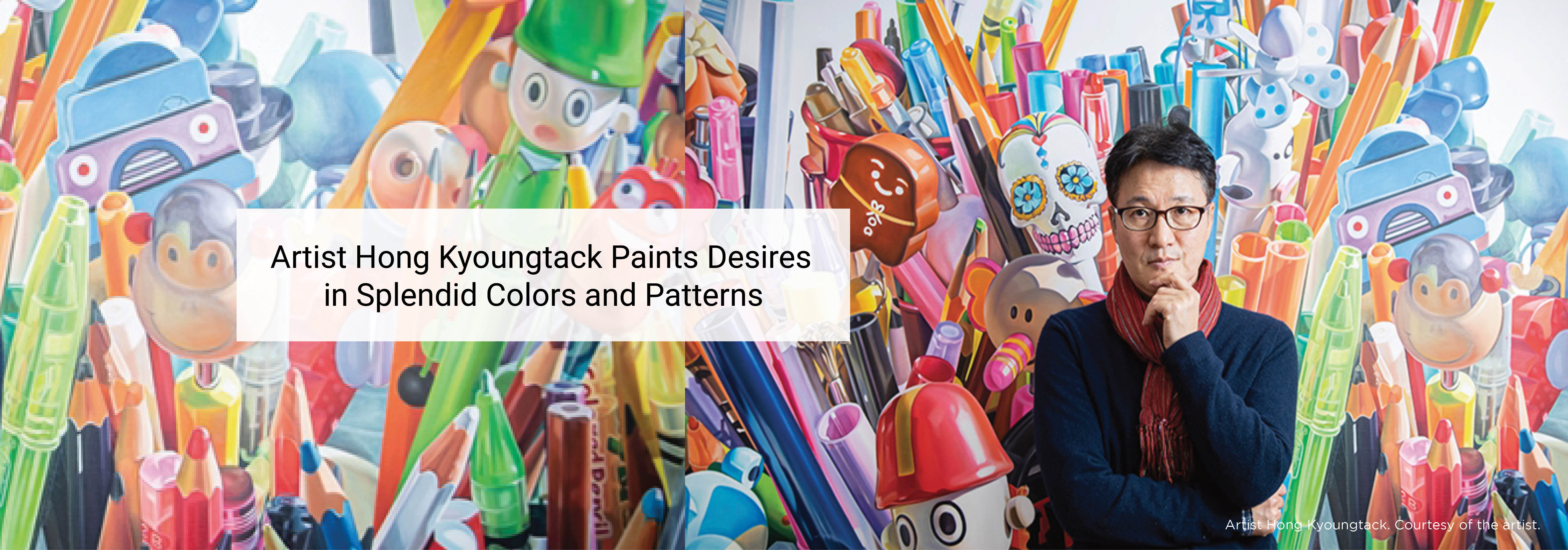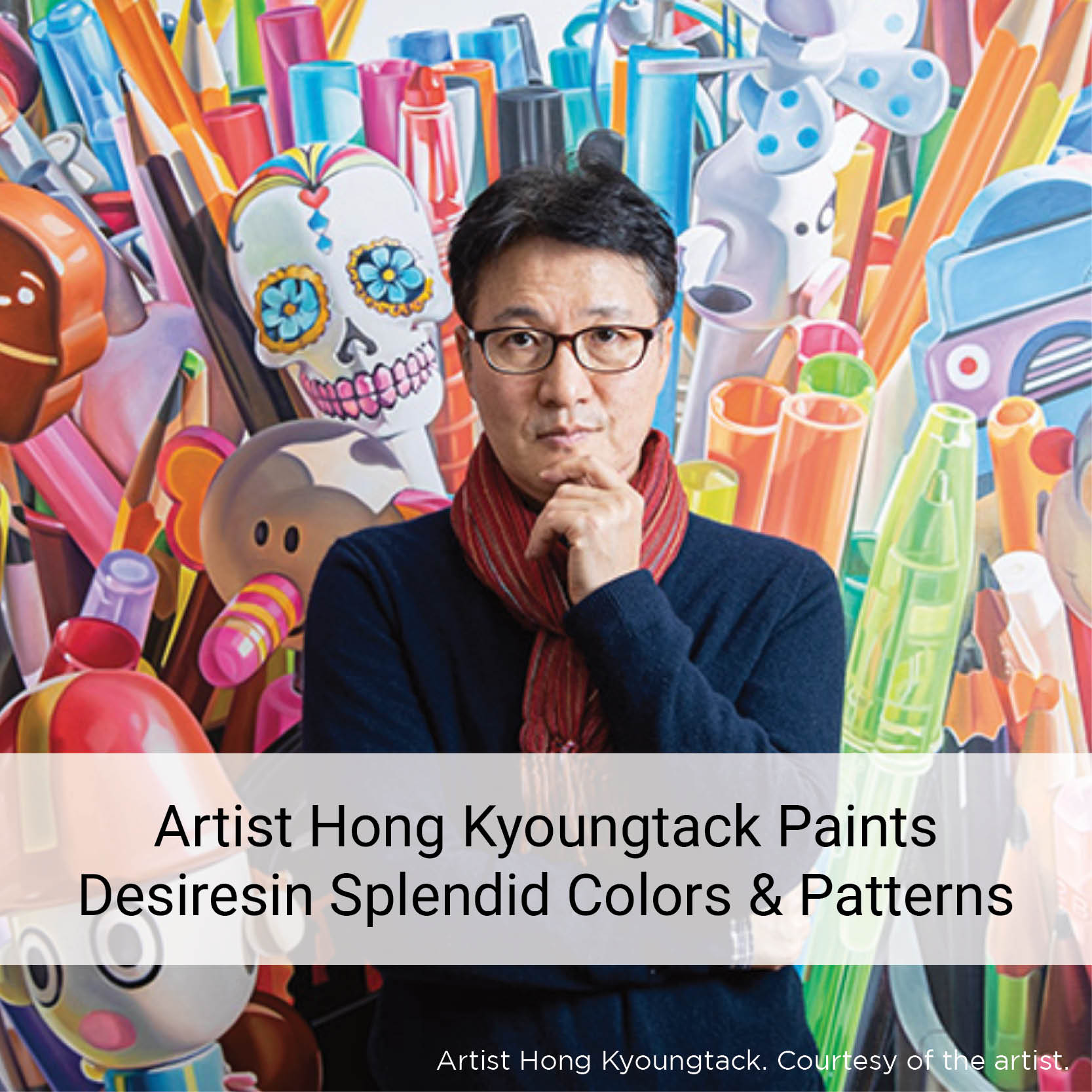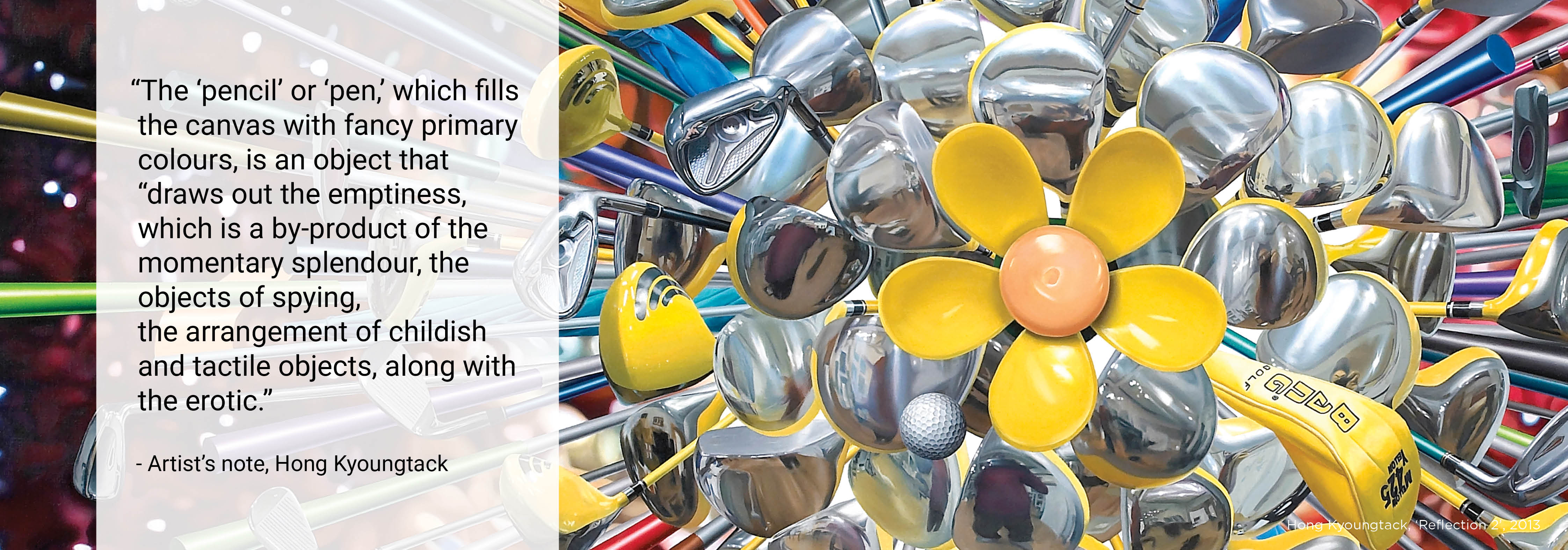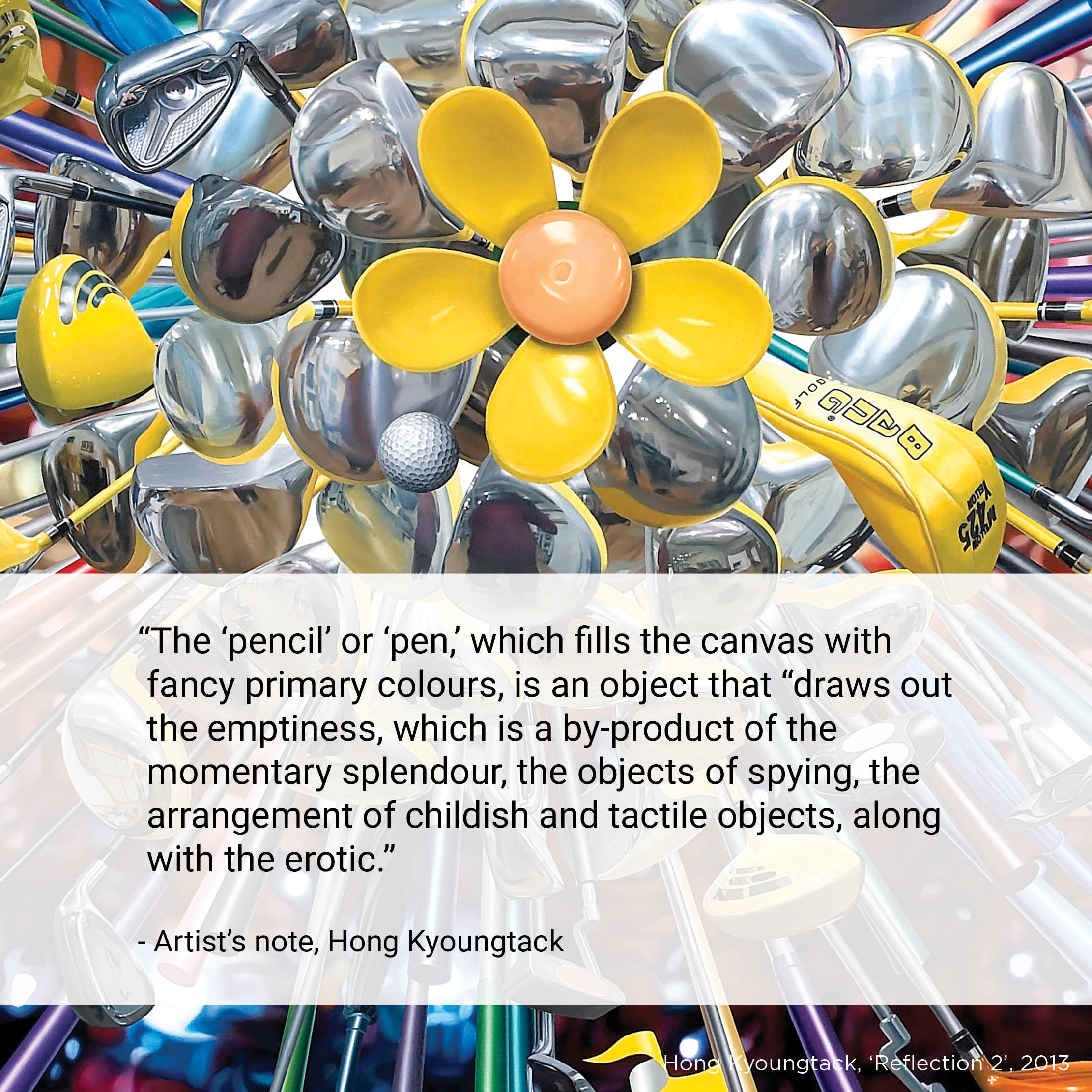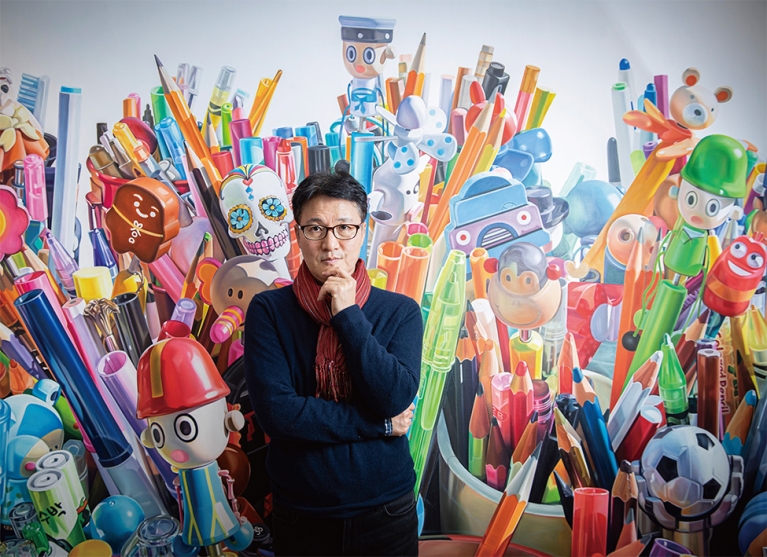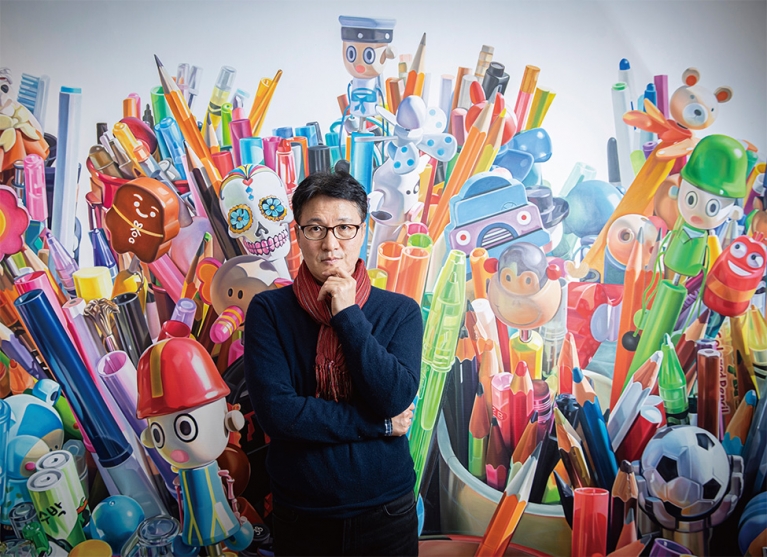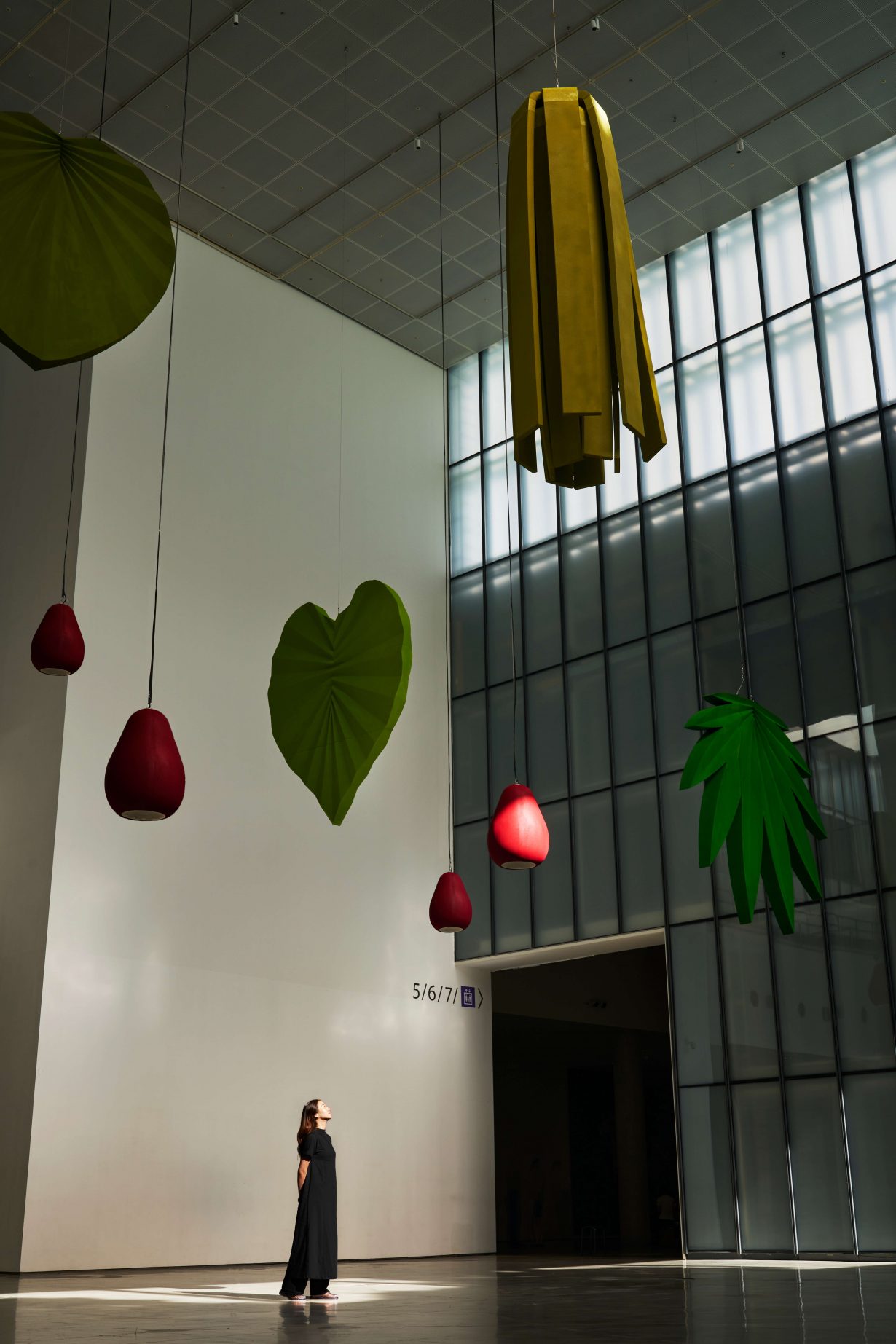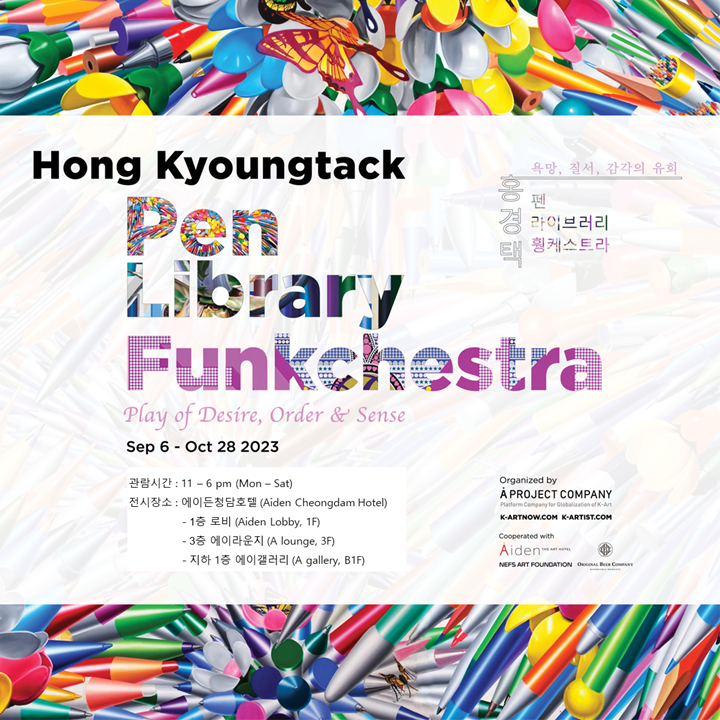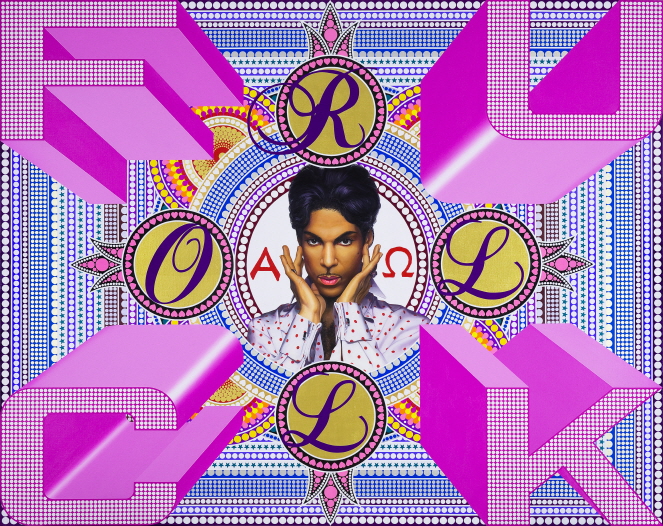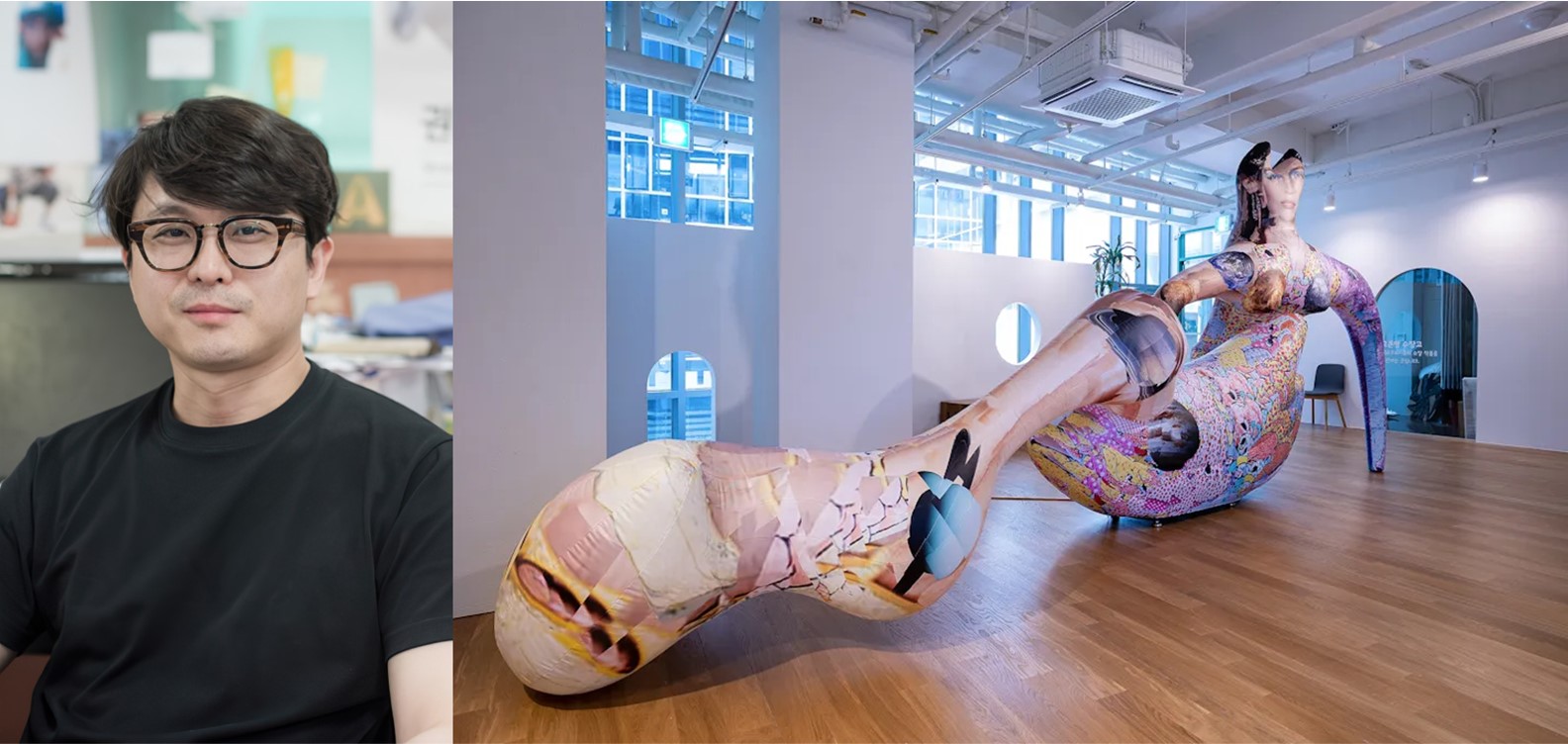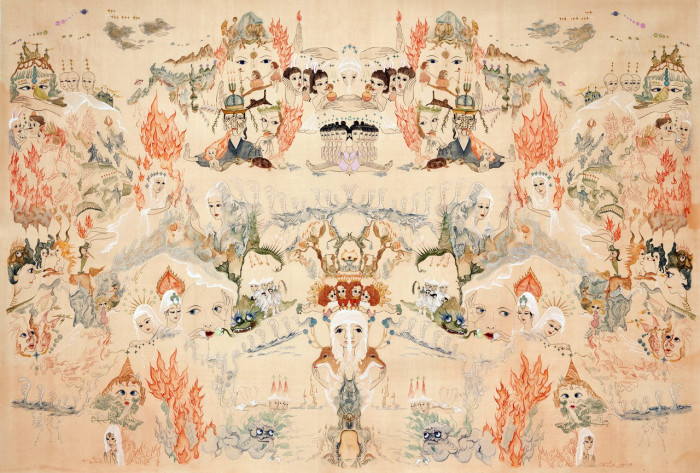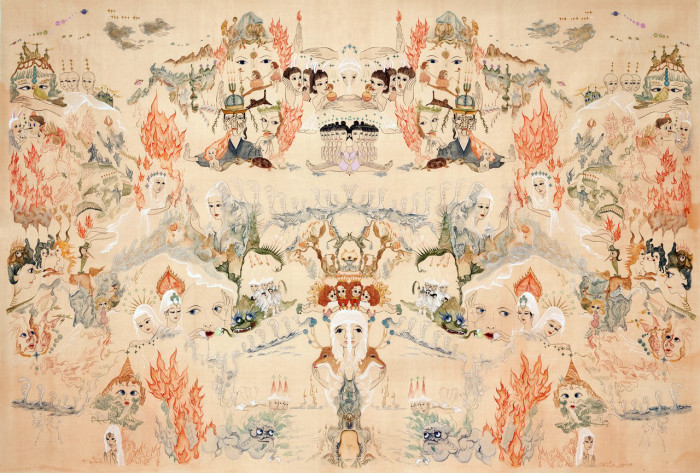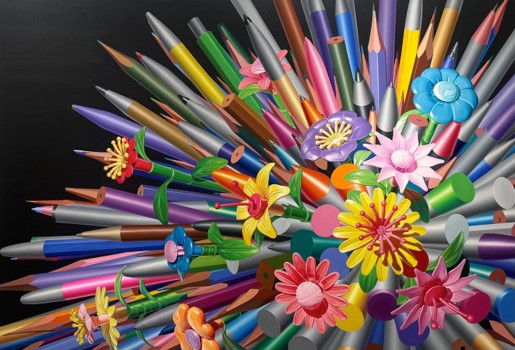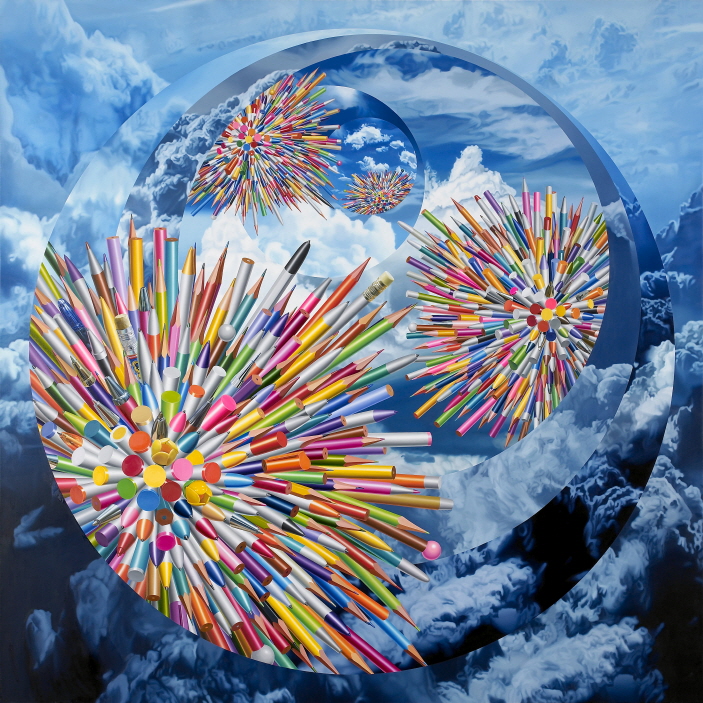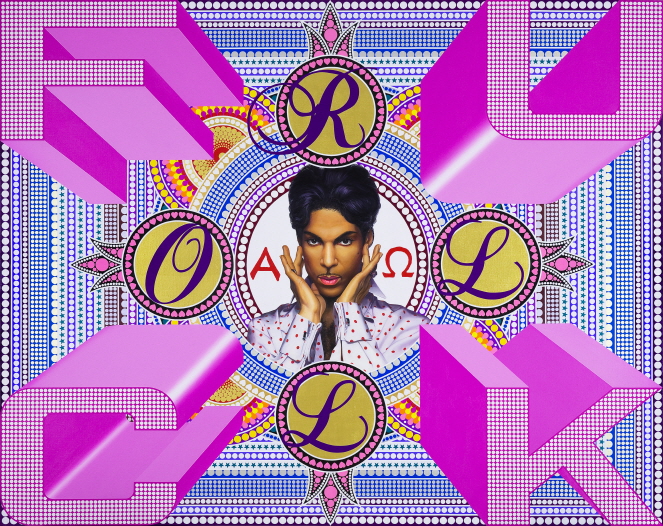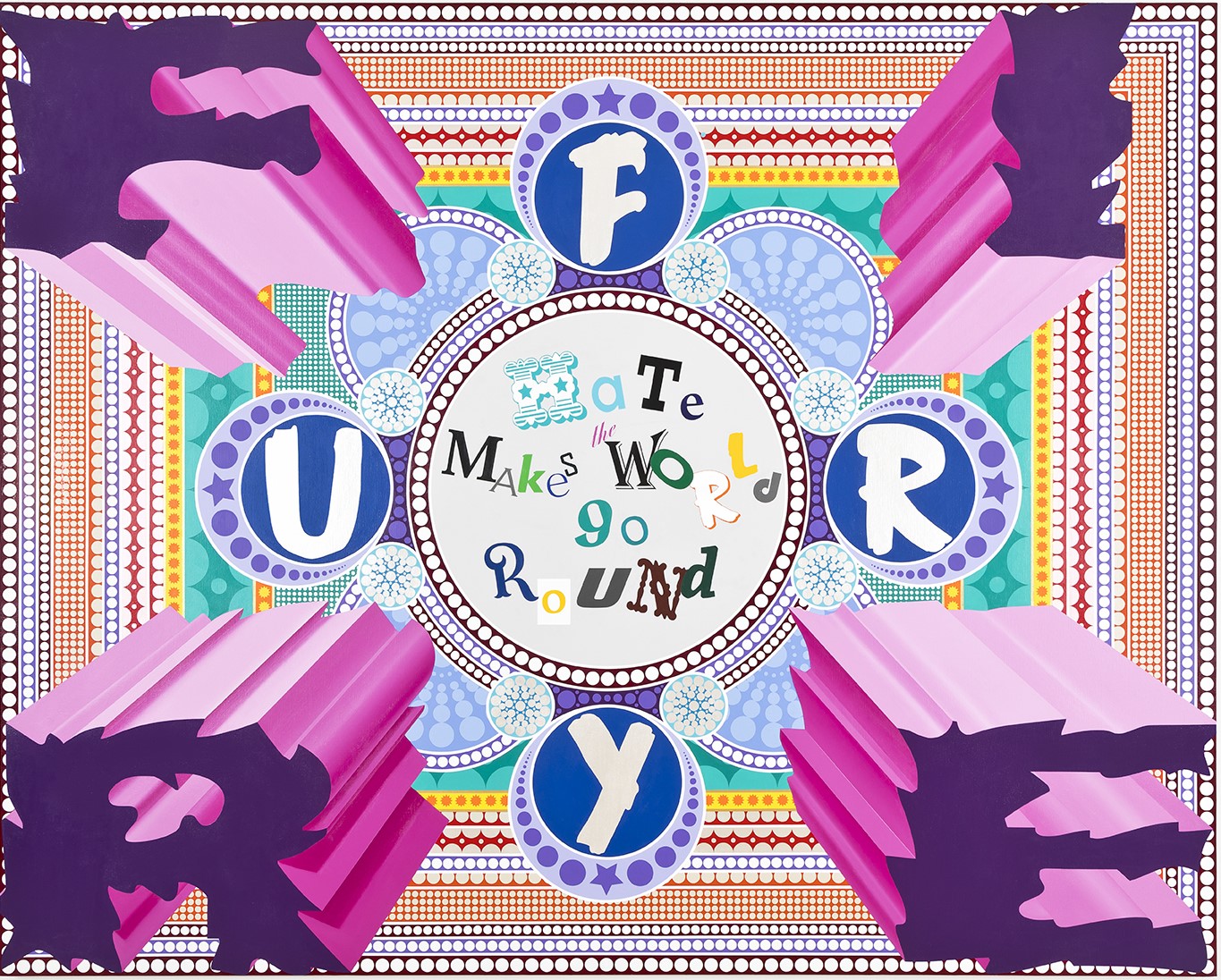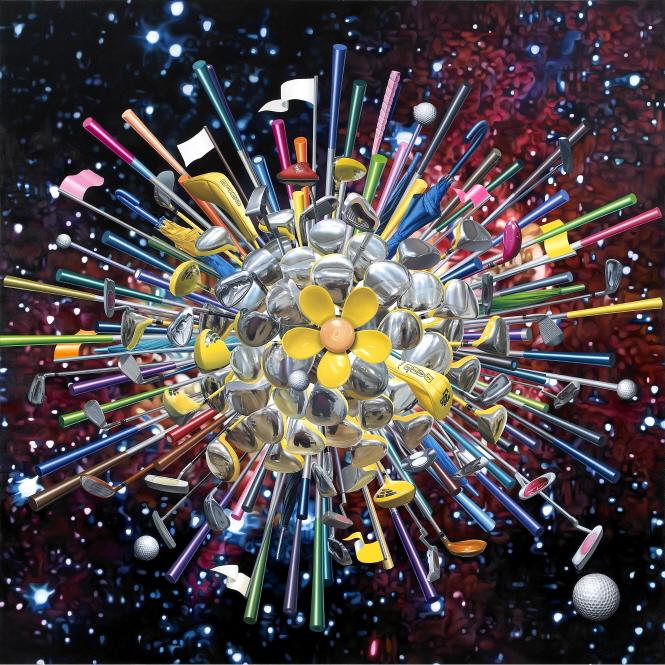
Hong Kyoungtack, 'Reflection 2,' 2013, Oil on linen, 79 x 79 in (200 x 200 cm). Courtesy of the artist.
Aside from the recent peak, South Korea has gone through several art market booms in the past. The boom in the 2000s was an important time for the Korean art market, as it went through structure diversification with new art fairs and auction houses opening and many galleries seeking to expand their activities outside the country. It was also the time when many young artists began to be introduced on the international stage.
Artist Hong Kyoungtack (b. 1968), in particular, was under the spotlight as his Pencil I was sold at HKD 6,480,000 (approximately US $858,000) at Christie’s Hong Kong auction in 2007, making it the highest bid for a work by a Korean artist.
Artist Hong Kyoungtack paints images of pencils, ballpoint pens, books, and images from popular music in the form of still-life paintings to reflect the desires of today’s society. Hong’s works, expressed in intense colors and patterns, contain various opposing elements, such as pop art and Korean folk painting, realism and abstraction, and classical and popular culture, in a way that reflects the two-sided aspects of modern society.
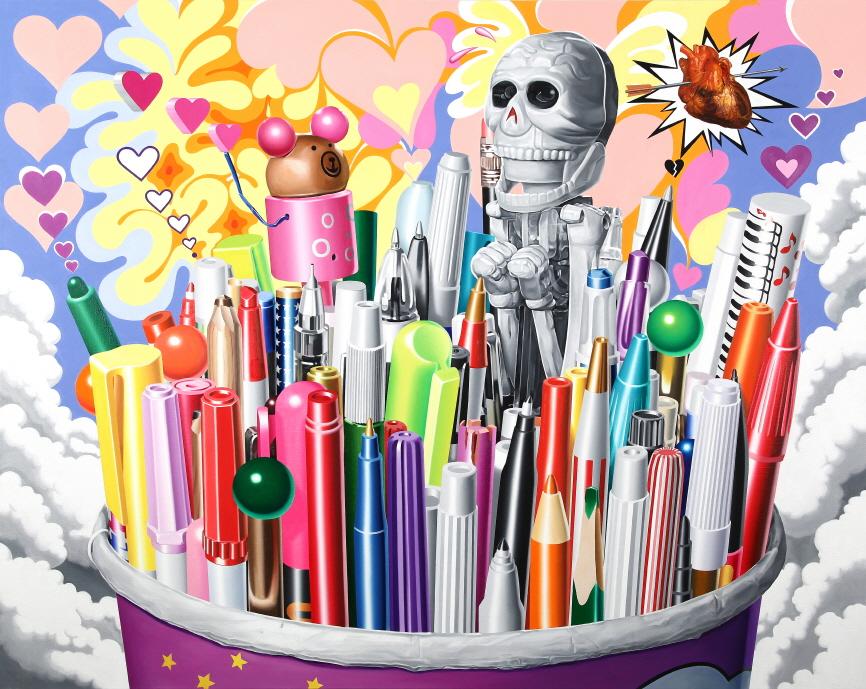
Hong Kyoungtack, 'Full of Love,' 2012, Oil on linen, 51 x 64 in (130 x 162 cm). Courtesy of the artist.
Hong’s most representative works include the Pens, the Library, and the Funkestra series.
Hong has long been interested in expressing the materiality of objects, particularly focusing on depicting the smooth and light surfaces of plastic objects. This interest of his is an extension of the social climate of the 1980s during his undergraduate days.
South Korea in the 1980s was going through a severe upheaval with the military regime, the Gwangju democratization movement, and numerous student movements. But on the other hand, it was the time when color television was introduced to the country, and popular culture, including movies, dramas, and pop music, quickly spread among the public.
Hong attempted to reflect on this situation by expressing something opposed to the chaotic social conditions while also gaining an insight into modern times. In that sense, plastic was one of the best materials to satisfy both sides of Korean society.
The properties of plastics were expressed as cups, hair combs, or book covers in his earlier works but gradually settled to pencils and pens. The smooth and sharp pens and pencils in various shapes and colors that fill the canvas give a splendid but aggressive impression.
Hong often depicts pens that have cartoon characters as decorations. To the artist, the unknown character designs randomly created by the manufacturing company reflect today’s society wherein anyone obscure to the public can obtain recognition.
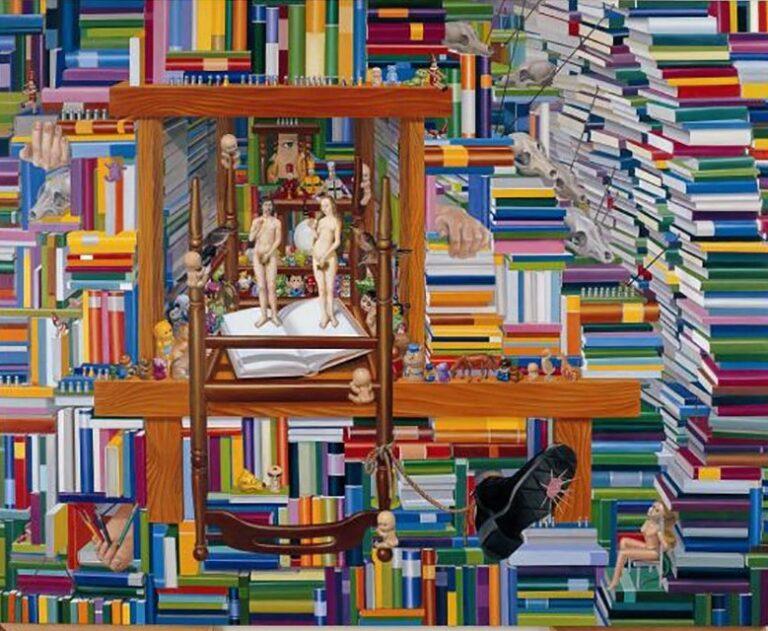
Hong Kyoungtack, 'Library 5,' 2005, oil on canvas, 51 x 64 in (130 x 162 cm). Courtesy of the artist.
In the 1980s and ‘90s, Korea was greatly influenced by American and Japanese popular culture. And there was a growing movement to resist these influences and emphasize the country’s own culture instead.
Hong began the Library series as part of this social flow. After discovering a book about Korean folk paintings, he was deeply impressed by the painting style used in Ch’aekkori works, which comprise paintings of books and scholars’ utensils, and began to paint these in a western painting style.
The geometric shapes of books and bookshelves composed of straight lines and squares are extensions of the artist’s interest in expressing the properties and materiality of objects. The study or library filled with books can be easily cut off from the outside world, but, at the same time, it can be a space where endless imagination can unfold. Likewise, books are objects that only occupy a small area but contain voluminous knowledge of human civilization and history. Thus, the Library series becomes another way for the artist to express ambiguity.
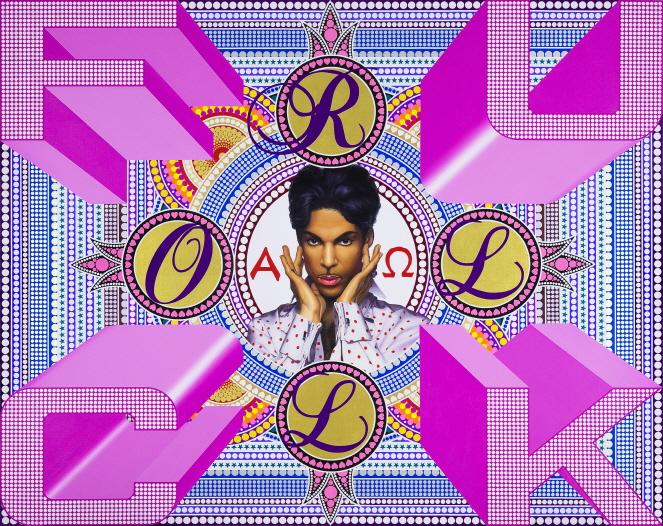
Hong Kyoungtack, 'Fuck and Roll,' 2008-2009, Acrylic, oil on linen, 71.2 x 89.3 in (181 x 227 cm). Courtesy of the artist.
Music filled the empty part of Hong’s life as he inevitably became less social, focusing on his paintings. His interest in pop music has stretched to work on the Funkestra series, which is a term that combines funk, a type of popular music, and orchestra, an ensemble of classical music. Just as the series title combines two opposite music genres, the artist reflects contemporary society using pop culture and classical elements. In the center of the extravagantly decorated paintings that remind us of western religious works, the artist places celebrities who are considered historical figures or inserts the lyrics of pop songs that are highly perceptive of current society.
Hong Kyungtack is an artist who has been developing his artistic practice based on painting to reflect the various aspect of the contemporary world surrounding him.
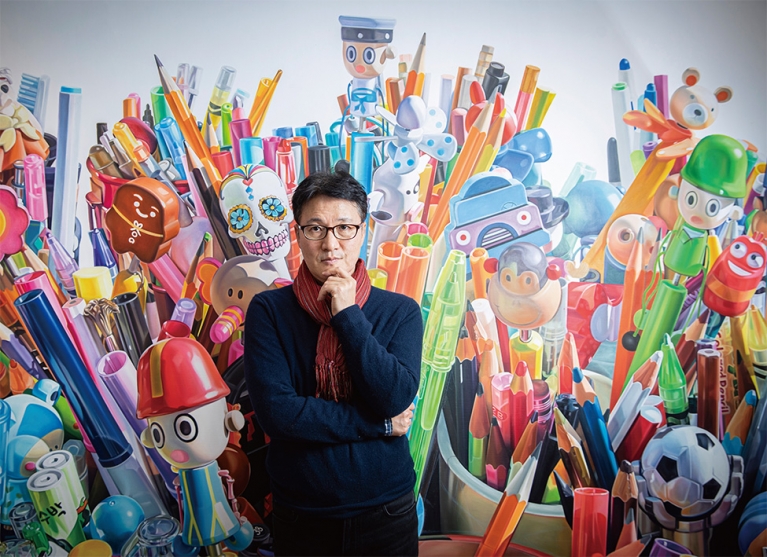
Artist Hong Kyoungtack. Courtesy of the aritst.
Hong Kyoungtack held his first solo exhibition at the Insa Art Museum (now the Insa Art Center, Seoul) in 2000. He has held other solo exhibitions at the ARKO Art Center (Seoul) in 2005, the Doosan Gallery (New York) in 2010, and the Indang Museum (Daegu) in 2019.
He has participated in numerous group exhibitions in world-leading institutions, including the Leeum Museum of Art in Seoul, the National Museum of Modern and Contemporary Art, Korea, in Seoul, the Seoul Museum of Art, the National Museum of Art in Beijing, the Santiago Museum of Contemporary Art in Chile, and the National Museum of Contemporary Art in Argentina.
Hong’s works are in the collections of the National Museum of Modern and Contemporary Art, Korea, the Leeum Samsung Museum of Art (Seoul), the Ilmin Museum of Art (Seoul), the Doosan Gallery (Seoul), and the Amorepacific Museum of Art (Seoul, Korea).



